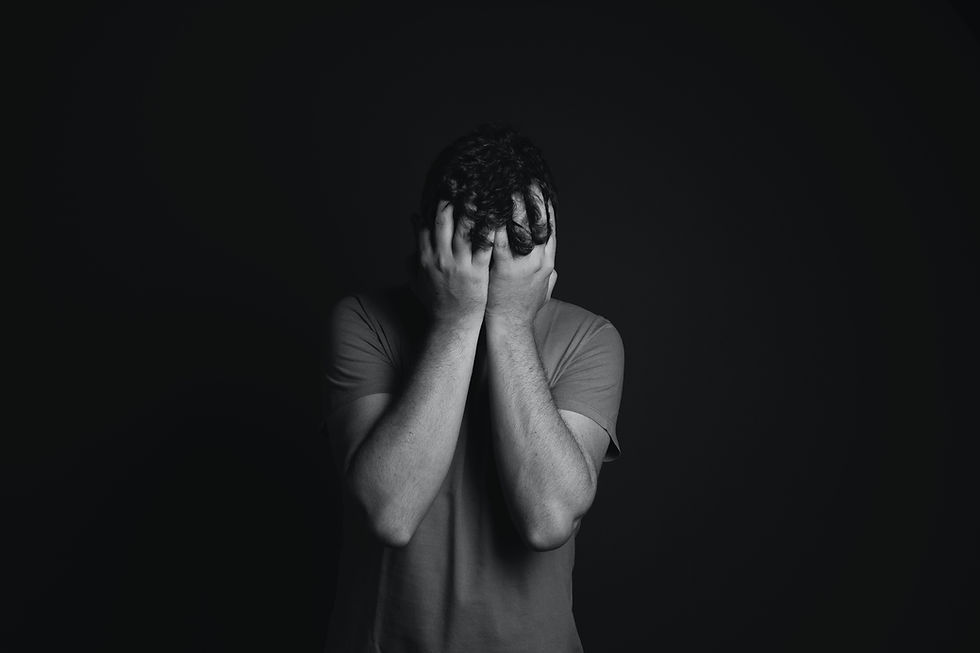Is Fashion Fuel to the Fire of the Mental Health Crisis?
- Sophie Capel-Creasy

- Oct 21, 2020
- 4 min read
Updated: Aug 19, 2021
From the outside, the fashion industry looks full of luxury and glamour. It’s an industry many of us strive to be a part of in one way or another – whether that be by buying in to new trends, studying fashion at university, following fashion influencers on social media or working in the industry itself.
However, the harsh reality of this is that we have all become subject to the negative effects to our mental health, despite turning a blind eye.
According to the World Health Organisation, 1 in 4 of us are affected by poor mental well-being. People that work in the fashion industry are 25% more likely to experience mental illness due to its fast-paced, demanding culture. It begs the question, why is struggling with your mental health not talked about more within the fashion community if so many of us are experiencing it?
The effects of the fashion facade
Fashion has a huge impact on us as customers and the health of our mind. With designers producing more collections as ever before and high-street brands continuously updating their new-in stock, no wonder we feel pressure to keep up with trends.
For many of us though, we are made to feel inadequate if we don’t buy into the latest fad. This is then amplified by social media and fashion influencers posting daily content of their luxurious lifestyles, attending fashion shows and receiving every PR package we would all dream of having.
It is this toxic facade of a luxurious fashion world that has such a detrimental effect. It has created an unachievable normal, adding extra pressure onto us as consumers, fueling the fire of the mental health crisis.
Are expectations too high?
It should also be recognised that even those at the top of the fashion hierarchy are affected by the pressures of fashion. Alexander McQueen and Kate Spade for example, took their own lives after battling with their mental health.
Perhaps to be a designer for a huge fashion house isn’t as glamorous as it’s made out to be. Producing up to 6 collections a year, working endless unsociable hours and travelling continuously, unsurprisingly can have a knock on effect to someone’s mental well-being.
Other people within the fashion community, such as models, students and those that work for brands in head office, face equal stresses. Fashion demands workers across the industry to have a hectic schedule, to be able to communicate at all times and to be entirely informed on all the information there is out there.
Students are expected to work for free, putting their career above everything else. Models are subject to unrealistic beauty standards, causing many to go to extreme lengths to get work in such a competitive industry. It’s clear to say no one in fashion is exempt from taking a hit to their mental well-being.
Time to break the stigma
In order to control fashion’s impact on our mind we need to break the stigma surrounding it. In 2019 Virgil Abloh, the menswear artistic director for Louis Vuitton, opened up about the effects of his job on his mental health. He announced he would take some time off from the relentlessly fast-paced industry to look after himself.
Virgil Abloh speaking up is a positive shift in fashion’s attitudes towards mental illness. Nonetheless, admitting when you’re struggling and opting to put your mental health first still needs to be more normalised.
H&M is a great example of a high-street brand providing adequate support for its employees. They hold workshops, in partnership with the charity Mind, for management staff, helping them identify mental health issues and offer suitable support.
H&M didn’t stop there, they also launched a campaign called ‘Let’s Talk About Mental Health’ to raise awareness amongst employees. They have put mental health higher up on the agenda, helping to remove the stigma and get people talking. Hopefully more brands will follow in their footsteps.
It needs to be known too, that fashion influencers that broadcast their extravagant lifestyles are only showing the best version of themselves, filtering out the bad bits. If more of these influential social media celebrities spoke up about real struggles and mental illness, it would have a positive domino effect on us as consumers.
The stigma needs to be detached from this crisis, from all angles, in order for the movement to gain momentum.
This is just the beginning
As people in fashion have started to speak up, more steps are being made in the right direction. However, there is still a long way to go regarding fashion and mental health. Support needs to be given to all of those that work in the industry and societal norms need to change. Expectations for consumers, industry professionals, designers need to be lessened.
Speaking up openly and honestly when struggling is equally important. Mental illness needs to be destigmatised before any significant change can happen in the fashion industry.



Comments